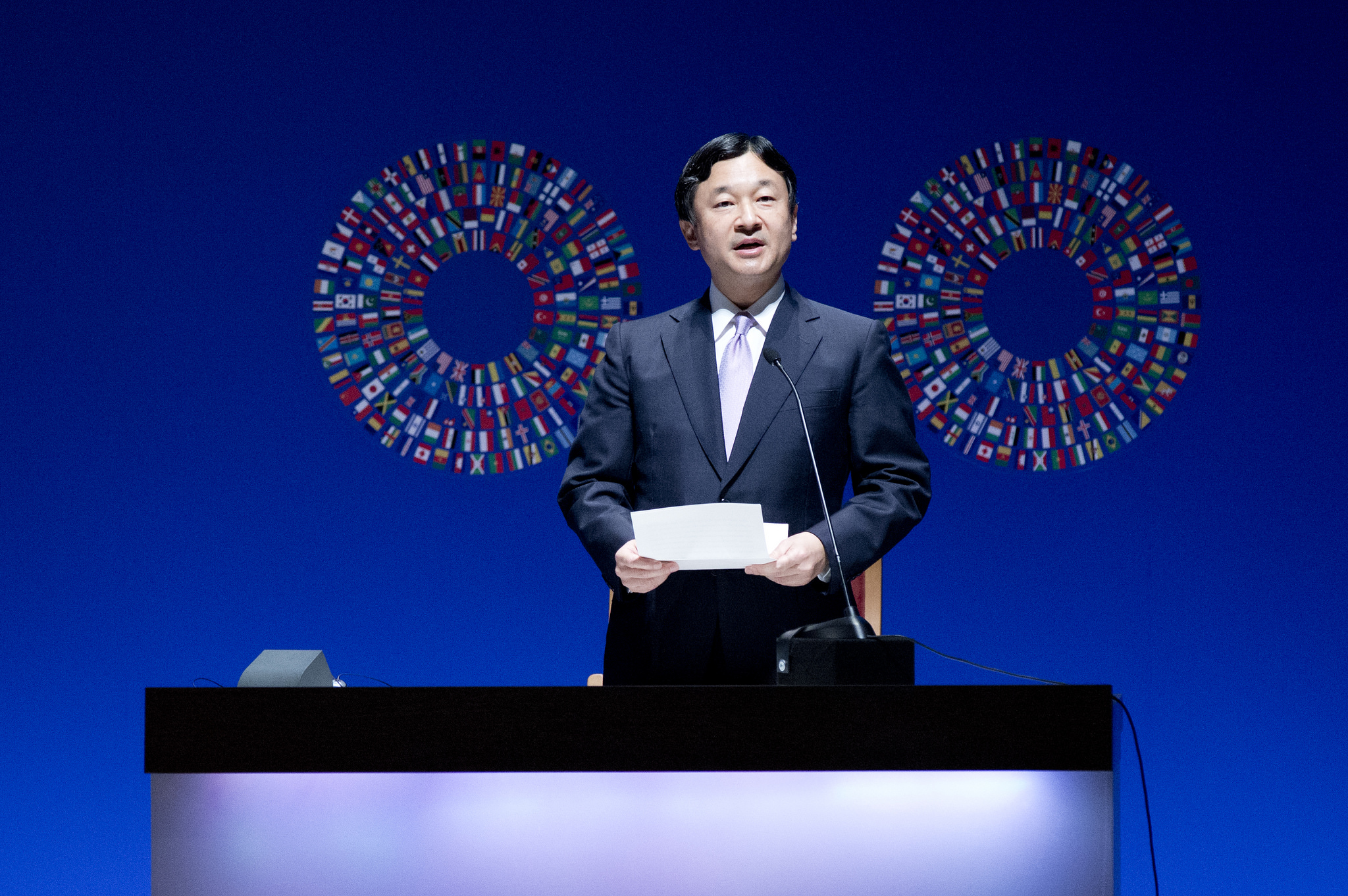
TOKYO – Japan’s new Emperor Naruhito will perform his first ritual Wednesday hours after succeeding his father on the Chrysanthemum Throne.
Naruhito will receive the Imperial regalia of sword and jewel as proof of succession at the ceremony and later will make his first address.
His wife, Empress Masako, a Harvard-educated former diplomat, and their daughter Princess Aiko, are barred from the first ceremony, where only adult male royals can participate.
Prime Minister Shinzo Abe’s Cabinet earlier Wednesday approved the male-only ritual as an official duty under Japan’s Constitution. The sword and jewel succession ceremony has been criticized as being out of step.
Akihito, 85, now holds the title of emperor emeritus after becoming Japan’s first emperor to abdicate in 200 years.
Japan is in a festive mood celebrating an imperial succession that occurred by retirement rather than by death. Many people stood outside the palace Tuesday to reminisce about Akihito’s era, others joined midnight events when the transition occurred, and more came to celebrate the beginning of Naruhito’s reign.
From a car window on his way to palace, Naruhito smiled and waved at the people on the sidewalk who cheered him. He and his family still live at the crown prince’s Togu palace until they switch places with his parents.
He is the nation’s 126th emperor, according to a palace count historians say could include mythical figures until around the 5th century.
The emperor under Japan’s constitution is a symbol without political power. Naruhito is free of influence from Japan’s imperial worship that was fanned by the wartime militarist government that had deified the emperor as a living god until his grandfather renounced that status after Japan’s 1945 war defeat.
Naruhito has promised to emulate his father in seeking peace and staying close to people. Palace watchers say he might focus on global issues, including disaster prevention, water conservation and climate change, which could appeal to younger Japanese.
He will also face uncertainties in the Imperial household. Only his younger brother, Prince Akishino, 53, and Akishino’s 12-year-old son, Prince Hisahito, can currently succeed him. The Imperial House Law confines the succession to male heirs, leaving Naruhito’s daughter, Aiko, now 17, out of the running.
Naruhito’s wife Masako is a Harvard-educated former diplomat who may prove an adept partner in his overseas travels and activities. But much will depend on her health, since she has been recovering from what the palace describes as stress-induced depression for about 15 years.
Naruhito, the first Japanese emperor to have studied abroad, is considered a new breed of royal, his outlook forged by the tradition-defying choices of his mother, Empress Emeritus Michiko, and Akihito, who broke with ancient imperial traditions.
Naruhito is also the first monarch raised by his own parents, as Akihito and Michiko, who was born a commoner, chose to take care of their children instead of leaving them in the hands of palace staff. They also supported his choice to attend Oxford University, where he researched the history of the Thames River transportation systems.
In an annual news conference marking his Feb. 23 birthday, Naruhito said he was open to taking up a new role that “suits the times.” But he said his father’s work will be his guidepost.